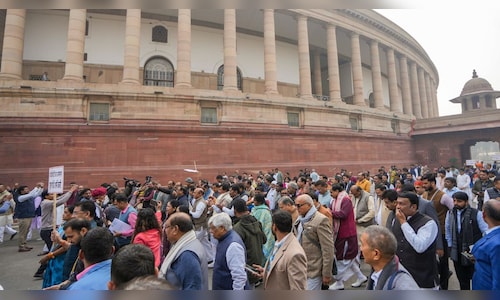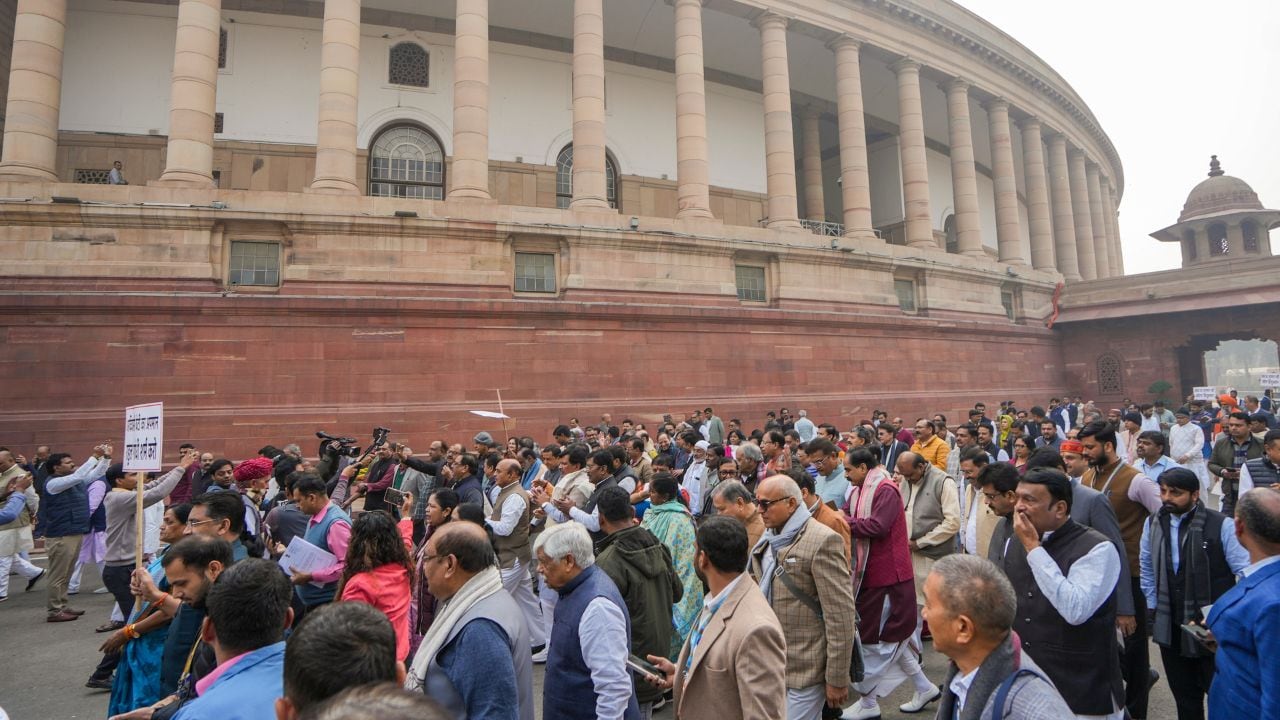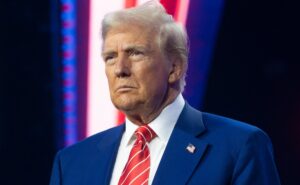

The incident occurred within Parliament’s premises when BJP members protested outside the gate leading to the House. This was in response to the Congress and other opposition parties demanding Home Minister Amit Shah’s resignation for his remarks on Dr. B R Ambedkar. Several other opposition parties, too, joined the issue with the BJP.
However, this was the solitary occasion during the session when the Opposition was on the same page. Otherwise through the start of the 20-day session, constituents of the I.N.D.I. Alliance decided to draw up individual priorities and avoid stalling the proceedings of the Houses.
There was a sense of disagreement with the Congress’ tactics of disrupting the proceedings in the House on the issue of the Modi government favouring one major corporate house. The opposition members, from parties other than the Congress, drew up their own list of issues, to demand a response from the government.
Eventually, in a change of tack, the Congress shifted its protests to outside the House, coming up with ways to gain traction. Sensing the isolation of the principal party in the Opposition, the BJP members too came out to protest charging the Congress leadership of being in league with the alleged interference of a US billionaire in India’s internal affairs.
Less than six months after the combined opposition arrived in the Lok Sabha with a new spring under its feet, fissures began to appear in the alliance. The principal cause was the severe electoral setbacks suffered in two back-to-back assembly elections of Haryana and Maharashtra took the sheen of the Congress.
Increasingly, voices emanated from constituents questioning the right of Congress to helm the opposition coalition. The Trinamool Congress leader Mamata Banerjee was favoured by the Samajwadi Party and the Rashtriya Janata Dal as a possible replacement for Rahul Gandhi and Congress President Mallikarjun Kharge. On his part, Rahul Gandhi suggested party MPs refrain from reacting to such suggestions coming from constituent parties.
Overall, the strategy of the opposition in general or the Congress in particular of stalling the Houses and forcing adjournments has become ineffective. Rather, it has turned into an instrument allowing the government to be let off without adequate scrutiny.
The best opportunity to hold the executive accountable to the legislature is the Question Hour. Any disruption in this scheduled hour on the list of business each day robs the members of the occasion to understand and exploring the frontiers of the government’s policy prescriptions. There were a few occasions when the Hour functioned.
Approach of the I.N.D.I. Alliance in both the Houses was different and this divergence at times gave the opposition a limited opportunity to put the government on the defensive in either House.
The Government which reels off statistics of Bills passed and Hours the Houses functioned as a measure of productivity, was left with a figure of 55 percent in the Lok Sabha and 40 percent in the Rajya Sabha of time utilised. As for Bills, of the 16 on the agenda, just one pertaining to Civil Aviation cleared Parliament, while four others – two each — were passed in the Upper and Lower House.
One of the most significant statements was made by External Affairs Minister Dr. S. Jaishankar on India-China relations, on which a debate could have been held especially since the Rajya Sabha members could not seek clarifications, as per convention.
In the House, the Opposition closed ranks and felt a strong sense of denial of space leading to the unprecedented motion of no-confidence against Chairman Jagdeep Dhankar. Though the motion was rejected, it reflected a breakdown of relationship, which does not augur well for parliamentary democracy.
What a combined opposition onslaught can achieve was demonstrated when the pushback led to extension in time for the Joint Committee of Parliament to present its report on the controversial Waqf Bill. The jointness also forced referral of the contentious ‘One Nation, One Election’ electoral reform Bills to another such Committee. In fact, the parliamentary managers of the National Democratic Alliance were portrayed in poor light for their inability to rustle up the numbers equal to the bench strength. That too after a whip.
The imperative of restoring parliamentary norms and decency in debates cannot be bartered. Yet, the opposition should avail of every space available to make a forceful case by taking up issues that millions of people are confronting in everyday life.
—The author, K V Prasad, is an author and political analyst. The views expressed are personal.
Read his previous articles here



